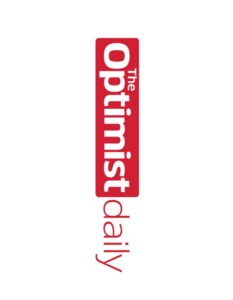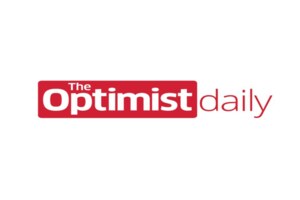“Good nutrition creates health in all areas of our existence.” – T. Colin Campbell
By Kristy Jansen
Even if you’re not a fan of American football, the massive spectacle of the championship game has become a singular event that rivals only Thanksgiving as the most American of traditions. Football legend Tom Brady, the quarterback for this year’s underdog Tampa Bay Buccaneers, is making his tenth appearance this year. He is 43 years old and will be the oldest player yet to appear in the Super Bowl.
I’m no fan of Tom Brady, though he shares my birthday. When he was quarterback to the New England Patriots, I joined with the majority of my friends and family at our annual super bowl watch parties to boo his touchdowns and root for the opposing team – all nine times they happened to be in the super bowl over the last few decades.
This year will be different. First of all, I’m not going to any watch parties this year, though we will probably watch the game on our own. If I’m honest, I’m more into watching the super bowl ads than I am interested in the game, but I like the idea of sharing something with my extended clan.
The other difference is that this year I’m thinking I’ll cheer for Brady while I also cheer for the rival team. I have to admit that there is some wisdom to be gained from a man in his mid forties not only participating in, but thriving in, the NFL.
Vegan Athletes
While he’s got great genes, and the resources to spend on the best doctors and the latest knowledge in sports medicine, one major factor Tom Brady credits for his endurance in the world of professional sports is his plant-based diet. But Brady isn’t the only one. Other athletes like soccer star Alex Morgan and basketball player Kyrie Irving also praise the nutrient-dense benefits of vegan diets. The trend is largely based on the principle of lowering inflammation as a way to maintain optimal health. The Optimist Daily has focused on this idea as well, writing about inflammation as the root of all disease in the past, with ideas on how to combat it.

T. Colin Campbell, author of The China Study, has been one of the most powerful advocates of the research supporting the benefits of a plant based diet. In a recent blog, he explored the links between strong immunity and protection against chronic “lifestyle” diseases, but also against viruses.
For example, Campbell’s research explored the likelihood that those who enjoyed a more plant focused diet had built up defenses against the hepatitis B virus, a primary cause of liver cancer. “HBV antibody prevalence was highly correlated with vegetable consumption, dietary fiber, and plant protein.” Campbell writes, “In short, more plant food consumption was associated with more antibodies.”
Veganism specifically has been shown to increase cardio capacity, lower inflammation, and improve nitric oxide levels. While some worry that a vegan diet will not provide the necessary amounts of daily protein, especially for active individuals, the reality is that you can get sufficient dietary protein from a diet rich in legumes, whole grains, nuts, seeds, fruit, and vegetables.
Campbell advocates for a vegan diet based on whole foods, as a way to address diabetes, high blood pressure and many other ailments associated with an industrial, meat based diet. But he goes even further, and suggests that “this nutritional strategy could produce a faster, safer, more comprehensive long-term solution for coping with viral diseases like COVID-19.” It’s not realistic for the entire world to adopt a whole food, plant-based diet overnight, no matter how beneficial it might be for the planet or public health, but as individuals, adopting as many lessons as we can based on this style of nourishment is one way to take responsibility for our own robust health.
Finding Balance
A healthy diet doesn’t necessarily mean going vegan, but rather taking full advantage of nutritional food options to fuel our bodies to best support us and ward off disease. Studies have shown over and over again that healthy diets are a primary factor in preventing numerous diseases, and also leading to more optimal health overall. But changing how we eat can feel like an insurmountable challenge.

“Nutrition is individual. There’s no one size fits all,” says Sarah Eichenbaum, a registered dietitian and author of the Sweetly Balanced blog. “I follow an all foods fit approach to nutrition – meaning there is a place for all the foods that we like in our diet. What I like to focus on is the additions we can make in our diet for overall health and wellness.” The idea is to find nourishing foods that you enjoy, not about banning whole categories of food. With her clients, Eichenbaum asks, “Where can we add in more of the fruits and vegetables that we like, without breaking the bank?”
Diets high in fruits, vegetables, fiber, protein, and critical nutrients like Omega-3s prevent inflammation which is a key factor in chronic illness. For example, choosing plant-based protein, like beans or legumes, in place of red meat lowers one’s risk of coronary heart disease by 14 percent. Foods high in vitamin C and carotenoids, like pumpkin, kiwis, and strawberries have also been associated with a lower risk of type 2 diabetes.
Part of the challenge for many people is just knowing where to start. Which is why education and balance is so essential. Eichenbaum cautions against getting too hung up on being perfect. Sometimes fresh produce is out of reach, but there are still ways to get that good nutrition. “For example,” she says, “frozen fruits and vegetables are equally as nutritious as fresh, and have a longer shelf life, are cost effective and are more available in some cases – and can be used in so many different ways.”
For some tips and recipes that feature healthy meals using frozen foods, check out this article from Eat This, Not That. It’s about being creative, wallet savvy and having fun with ingredients on hand.
Nutritional Healing
Food is a natural medicine for warding off viral and bacteria diseases as well. Vitamin C boosts white blood cell function to strengthen the immune system, while vitamin D has been identified as critical for immune health, bone health, and microbiome diversity. Vitamin D is also one of the most prominent nutrients for protecting against Covid-19 specifically. That said, while a healthy immune system is critical to good health, it’s not a panacea against this pandemic. There is no substitute for wearing masks, keeping a safe physical distance and maintaining good hygiene to lower the chance of virus exposure.
One study of 489 people found that those who had a vitamin D deficiency were more likely to test positive for the virus that causes COVID-19 than people who had normal levels of vitamin D. While it’s possible to get enough vitamin D through our diets and through sun exposure, the awful truth is that many Americans are deficient in this essential vitamin – we rely on processed foods denuded of nutrition, and spend most of our time indoors. Especially in the wintertime, especially if we live in colder climates.

Wondering how to make sure you’re getting enough of these critical nutrients? Supplements can help us boost vitamin and nutrient intake if we need it, but oftentimes, a well balanced diet is enough to get us all the daily nutrients we need.
Eggs, salmon, mushrooms, and dairy are all great ways to get vitamin D, and so is a good daily dose of sunshine. Fresh fruits and vegetables like citrus, sweet potatoes, and berries are ideal vitamin C sources. Zinc is the other essential mineral, often credited with boosting immunity and is important for maintaining good health. Good sources of zinc include meat, seafood, nuts, seeds, legumes and dairy.
Connection and Caring
In addition to eating right, there are other factors that can help us boost our immunity. For example, getting good sleep, stating active, and maintaining close personal relationships are all essential factors in wellness, healthiness and longevity. Forming lasting friendships, for example, has been shown to be as important a factor in longevity as eating a healthy diet.
As I watch today’s big game, I will miss the energetic feeling of sitting in a room with friends, eating whatever passes for healthy from the party favors on the shared buffet table. Still, we will be watching in tandem, and maybe doing a bit of FaceTiming to share some highlights. And taking a page from the Brady playbook – I’ll be thinking about what nourishes my body and my heart while I enjoy a vegan hotdog, smothered in a delicious three bean chili, and celebrate whoever wins today.











